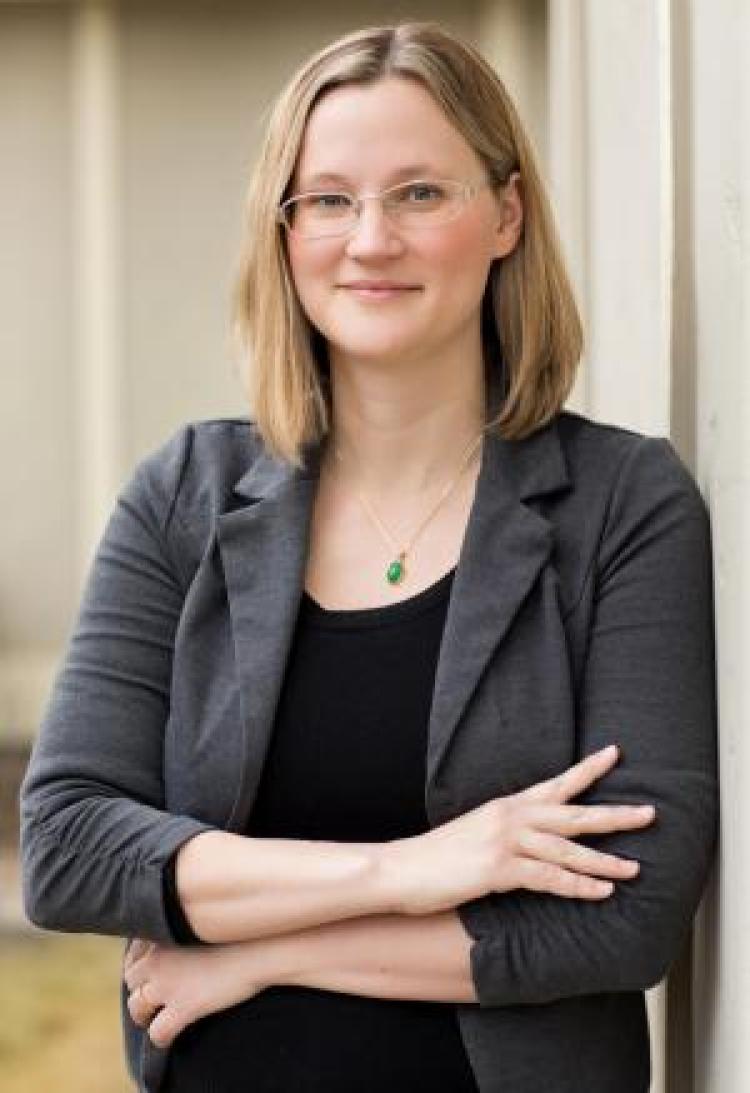Cracking the nest egg: when governments mess with pensions
Award-winning book by CU Boulder political scientist explores global trend in pension policy reversals
Sarah Wilson Sokhey, an assistant professor of political science at the University of Colorado Boulder, was recently honored for her book The Political Economy of Pension Policy Reversal in Post-Communist Countries, which explores countries that privatized public retirement benefits, only to reverse course.
In studying countries that privatized their social-security programs, Wilson Sokhey discovered that many post-communist countries ended up reversing their policy changes for short-term political or financial reasons.

Sarah Wilson Sokhey
“Pension policy isn’t always about pensioners, it’s also about a pot of money politicians get to play with,” she says.
Wilson Sokhey shared the 2018 Ed A. Hewitt Book Award for outstanding monograph on the political economy of Russia, Eurasia and/or Eastern Europe. The award is bestowed by the Association for Slavic, East European, and Eurasian Studies, a prominent international group.
Pension privatization takes mandatory social security contributions and redirects them to individual accounts that are privately managed. While researching a reversal of privatization reform in Argentina that began in 2008, she uncovered a remarkable pattern of reversals that spread across several former Communist countries including Hungary, Romania, and Poland in subsequent years.
“At first I thought it was a blip,” she says of her initial research on Argentina. “But then a lot of countries started getting rid of their pension reforms, and they were mostly post-communist.”
The book posits that the countries adopting moderate versions of pension privatization—rather than the most limited or most extensive reforms—are most likely to scrap them. This is because moderate reforms are not as economically and culturally entrenched as large reforms, and small reforms aren’t worth the effort of overturning.
In small reforms, only a small portion of future benefits come from individual accounts and the majority is still provided by the traditional social security system. Extensive reforms involve a large portion, or even all, of future retirement benefits managed in individual retirement accounts.
At first I thought it was a blip. But then a lot of countries started getting rid of their pension reforms, and they were mostly post-communist.”
“At moderate level of reform, politicians could get still get significant money in the short-term, which is what they wanted after the 2008 economic downturn,” Wilson Sokhey says of reversing privatization.
For example, Russia saved $50 billion from its 2012 reversal of moderate reforms, which nearly erased the state’s pension fund deficit for the following year. It was what Wilson Sokhey refers to as a “sweet-spot” where the government saved a lot of money in the short-term with minimum public backlash.
“When Russia reversed its pension privatization, the government froze contributions to the individual accounts,” she explains. “That money, taken out as a payroll tax, instead went to the government's general coffers instead of being invested in individual retirement accounts.”
Furthermore, the financial burden of implementing reforms was more than some countries’ economies were willing to continue to bear.
“With pension privatization, in the short term you have to pay for current retirees, while you save money for future generations,” she says. “That can add up to 3 to 6 percent of GDP annually until you fully transition.”
An aging population makes Wilson Sokhey’s research particularly relevant for policymakers and citizens, not just in post-communist countries but also in most developed countries.
With fewer working people paying into the system, and more retirees drawing on the funds, she says, “You have to think about how you make social security both sustainable and adequate so you don’t have people going into poverty after they stop working.”
Climate change can be used as a similar example of the dilemma politicians face when considering policies that have effects far beyond their terms of office.
“You want to do things that make sense long term,” she says. “But you have to have a short-term incentive to do what’s best in the long term.”
She concludes in her book that some reforms do generate such positives, which both help them survive and address the country’s social and economic challenges. These, also, vary based on the type of reform and circumstances.
For instance, in most of the Latin American countries that adopted pension privatization (with the notable exception of Argentina), governments engaged in a reform of the reforms introducing measures to do things like reduce administrative costs and provide additional retirement support for those at the lowest income levels.
“Figuring out sustainable ways to bolster social security is important,” Wilson Sokhey says. “There’s no one magic bullet. It’s different in every country.”

